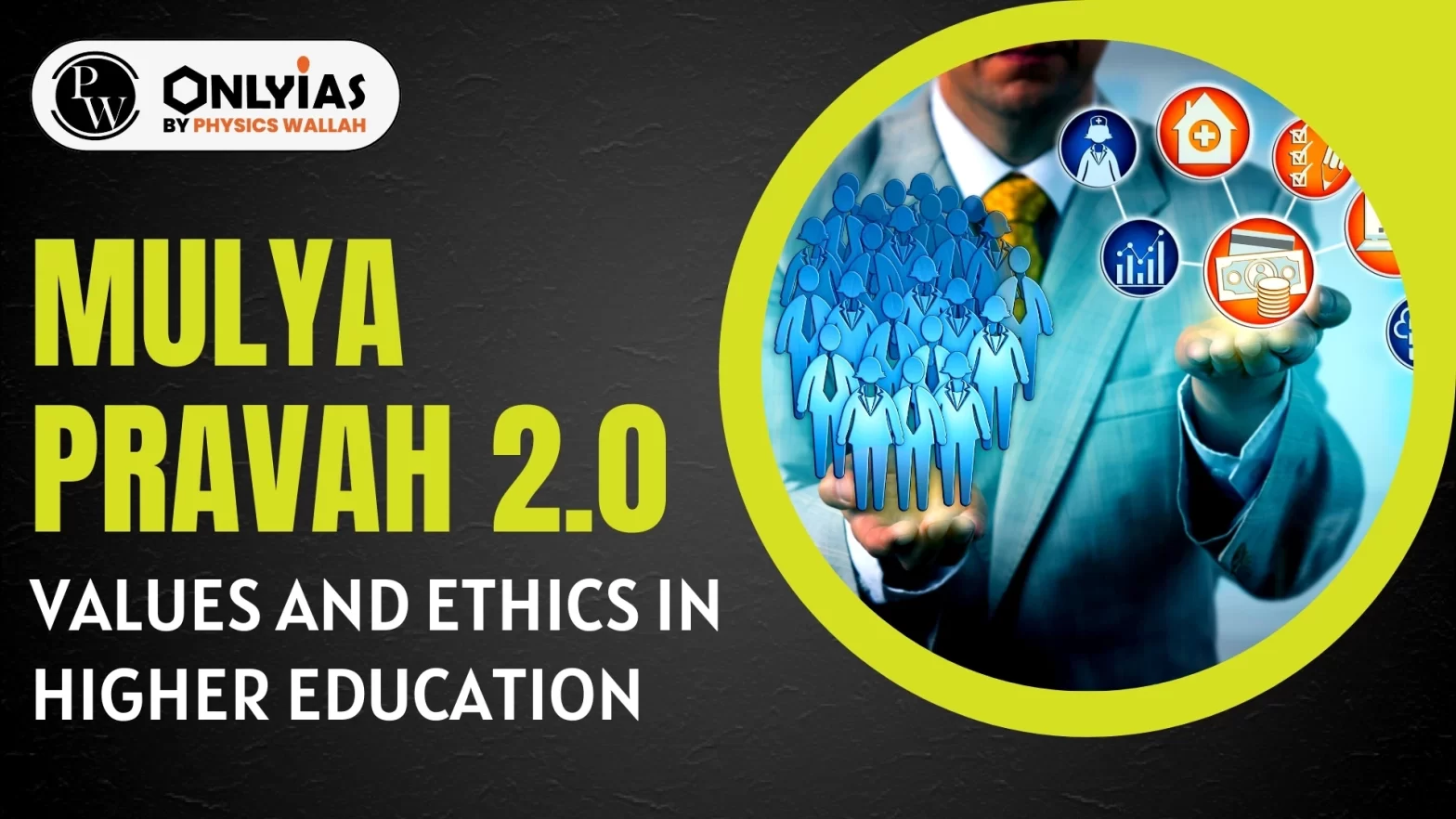Context: This editorial is based on the news “An ambitious push for values, ethics in higher education” which was published in the Hindu. This article highlights the concerns over the findings of a survey of human resource managers which mentions unethical practices in various organizations and need for better implementation of the University Grants Commission’s (UGC) guideline, Mulya Pravah 2.0, which seeks to inculcate human values and professional ethics in higher education institutions.
What Are the Concerns Raised by the Survey Findings in Higher Education in India?
- Favoritism in hiring, training, pay and promotion
- Sexual harassment
- Gender discrimination in promotion
- Inconsistent view on discipline
- Lack of confidentiality
- Gender differentiation in compensation
- Non-performance factors overlooked in appraisals
- Arrangements with vendors for personal gain
- Gender discrimination during recruitment and hiring
About Mulya Pravah 2.0
- Aim: To build value-based institutions by orienting individuals and institutions towards developing a deep respect for fundamental duties and constitutional values and bonding with the country.
- Focus On:
- Need for Transparency: It underscores the need for utmost transparency in administration and highlights that decision-making in higher education institutions must be solely guided by institutional and public interest.
- Abolition for Discriminatory Privileges: It seeks to abolish the discriminatory privileges of officials and calls the administration to punish the corrupt.
- It lays stress on encouraging persons at all levels to think and give their advice freely.
- Requirement: The guideline requires higher education administration to conduct matters ensuring accountability, transparency, fairness, honesty, and the highest degree of ethics.
- Potential Development: It reminds them to act in the best interest of their institution, create a conducive culture and work environment for teaching, learning, and research and develop the potential of their institution.
- Positive Attitude: It asserts that officers and staff must refrain from misappropriating financial and other resources, and refuse to accept anything that may affect their impartial performance of duties.
- Disclosure of Information: Higher education institutions must be mandated to voluntarily disclose all critical information and subject themselves to public scrutiny. They must put up their annual reports and audited accounts in the public domain.
- Issue of Confidentiality: It runs counter to the right of information as an instrument to ensure accountability.
- Accountability: Need to upload agendas, proceedings and minutes of the meetings of their decision-making bodies, sub-committees and standing committees.
- Expectations: Mulya Pravah 2.0 expects staff and student unions to support the administration in development activities and raise issues in a dignified manner.
- Challenge: The guideline does not define what ‘dignified manner’ entails, the provision could be misused.
Steps Can Be Taken to Enhance Governance in Higher Education
- Curb Corruption: The UGC must get credit for notifying the guideline to curb corruption and violations of ethics and integrity.
- The higher education regulators must demonstrate zero tolerance and act to counter corruption in the admission, examination, hiring processes or, for that matter, in any aspect of university administration.
- Proactive Participation: Each stakeholder must be allowed to proactively participate in protecting, preserving and promoting the culture and standards and decision-making of their institutions.
Must Read: Higher Education & The Skill Requirements In The Job Market
Conclusion
Mulya Pravah 2.0 by the University Grants Commission is a desirable step towards inculcating values of ethics in higher education. However, it has few challenges that need to be tackled by discussion with all associated stakeholders and requires strict implementation, then only it can improve the quality and sustainability of the decisions.
![]() 9 Jan 2024
9 Jan 2024

